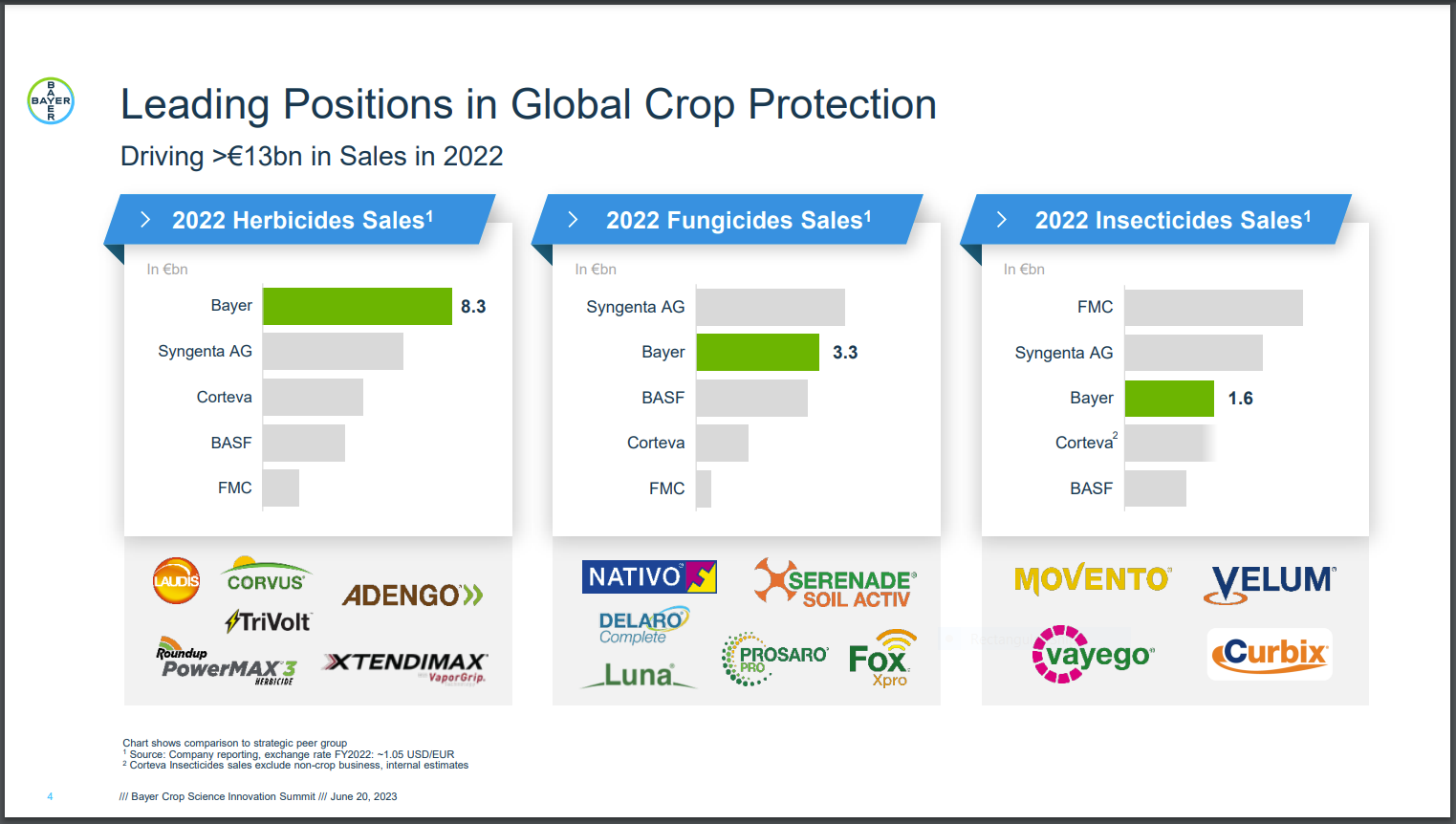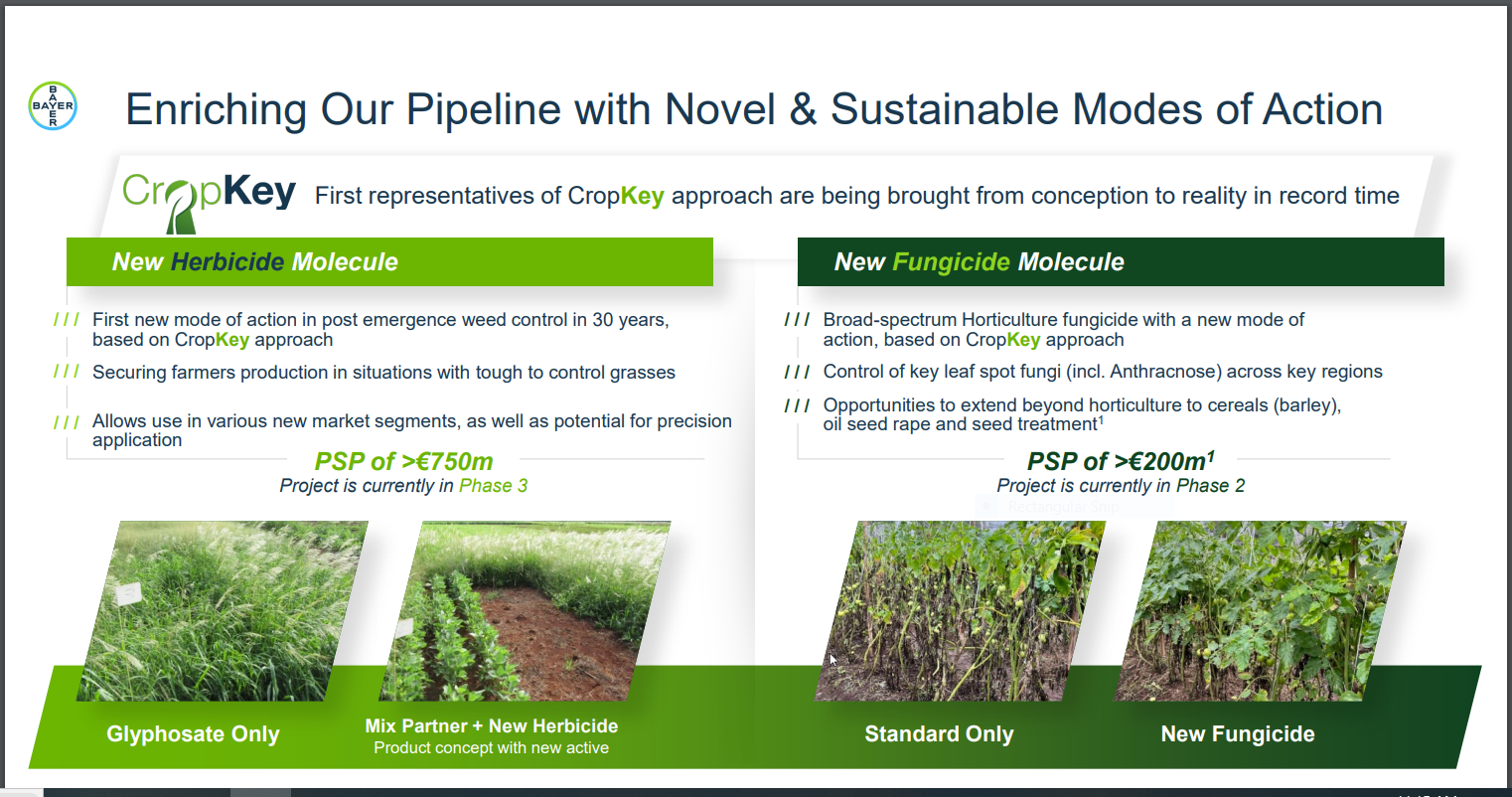Technology Unlocks The Door to New Modes of Action for Controlling Insects, Disease and Weeds

As U.S. farmers continue to battle broadleaf weeds and grasses increasingly difficult to control, companies have been on a quest to identify solutions. But finding and bringing new modes of action (MoA) to the marketplace that could offer row-crop growers relief from weed pressure – especially those weeds with herbicide resistance – has been akin to finding the proverbial needle in the haystack.
More than 30 years have passed since a truly new MoA was introduced for farmers’ use. Bayer Crop Science leadership hopes to change that with its new, novel approach to the discovery and development of crop protection solutions, which the company has named CropKey.
Along with helping Bayer identify new herbicide modes of action, CropKey will help the company develop solutions for insects and diseases.
“It’s an entirely new approach which will allow Bayer Crop Science to reach new levels in precision and sustainability while being exceptionally effective,” said Axel Trautwein, Ph.D., head of small molecules research for the company.
To date, using CropKey, the company currently has a number of novel MoAs in the pipeline at various stages including:
~30 that are in the discovery phase.
~10 that have been validated as new MoAs that are in the early research phase.
~5 that have been evaluated with external providers.
Trautwein unveiled the concept of CropKey during the company’s first-ever Innovation Summit in New York City on June 20. The day-long program addressed a variety of opportunities the company is focusing on in regenerative agriculture in addition to its core business focus on seeds, traits, crop protection and digital offerings.
Rodrigo Santos, president of Bayer’s Crop Science Division, said the company defines regenerative agriculture as increasing food production, farm incomes and resilience in a changing climate while renewing nature.
“Our portfolio will deliver future innovations with regenerative agriculture at the core, and we will explore new market opportunities to further allow farmers to combine productivity, profitability and sustainability benefits,” he said during the event, which participants attended in-person and online. The 2023 Bayer Crop Science Innovation Summit program is available for viewing here.
A Drought In Herbicide Development
Historically, companies working in the crop protection arena would start the discovery process for new products by testing a series of small molecules and identifying those that demonstrated a high level of activity on weeds, insects and/or disease.
Molecules showing promise would then be earmarked by researchers for further testing and development in laboratories, greenhouses and, finally, in the field prior to market introduction.
The traditional discovery process has been time-intensive, laborious and expensive. By 2016, the cost to produce a single new active ingredient for herbicides, for example, was estimated at nearly $286 million, according to a 2019 article published in Plants, a scientific, peer-reviewed, open-access journal.
Prohibitive costs relative to the return on investment, industry consolidation, an increasingly restrictive regulatory environment – not to mention the highly effective, relatively inexpensive solution of glyphosate and glyphosate-tolerant crops – have contributed to the long-term drought in the development of new modes of action for the herbicide marketplace.
Similar issues have slowed new product development for controlling insects and disease.

What Makes CropKey Different?
Trautwein said CropKey is helping Bayer find crop protection solutions that will close the door on weeds, pests or diseases by binding to a specific target protein within them using small molecules that act as keys to lock targeted proteins away from crops – thus the CropKey name.
“With CropKey instead of selecting molecules, we're able to design them,” Trautwein said.
The discovery and design processes involve a four-part approach Bayer calls an Advanced Discovery Engine, which includes:
1. Computational target discovery – Discovering selective and safe modes of action by proprietary algorithms and omics – an area of biotechnology study which analyzes the structure and whole makeup of a given biological function, such as the emerging field of genomics.
2. A new paradigm in screening – Gaining deep knowledge on biological systems by machine-learning approaches and virtual screening and docking.
3. Digital chemistry – Exploring unlimited virtual chemical spaces by artificial intelligence supported selection, design and synthesis.
4. Predictive early safety – Focusing on registrability and sustainability supported by in vitro tests and in silico predictive models.
“We're creating entirely new crop protection solutions using computational modeling, proprietary algorithms and multiomics techniques that take advantage of massive amounts of data and machine learning,” Trautwein said. “These methods simply didn't exist when I started my career in crop protection chemistry.”
Two New Modes Of Action From CropKey
To date, Bayer has announced two new modes of action its scientists have designed using the CropKey approach, which company officials said are being brought from conception to reality in record time.
“First, for fruits and vegetables we have designed a unique, broad-spectrum fungicide with a new mode of action and performance above commercial standards. Now in phase 2, this fungicide shows potential for control of key relevant leaf spot fungi, diseases like botrytis, anthracnosis, and powdery mildew,” Bayer said in a press release.
Another product of the CropKey approach is a previously announced herbicide molecule, which is the first new herbicide mode of action for broadacre post-emergent weed control in 30 years.
“This product has significant potential as a strong complement to glyphosate-based herbicides,” Trautwein said during the Innovation Summit.
Bayer gave media the opportunity to see the performance of the new MOA in a field research plot during a 2022 event at its Jerseyville, Ill., research and development facility.
The new molecule has demonstrated effective control of key resistant grasses in research plots and is expected to be commercialized for farmers’ use by the end of this decade.
Is Your Operation Prepared for a Tar Spot Outbreak?
Tar Spot Found to Thrive on High-Humidity Days
Ag Retailer Fills Need and Finds Niche with Drone Spraying








